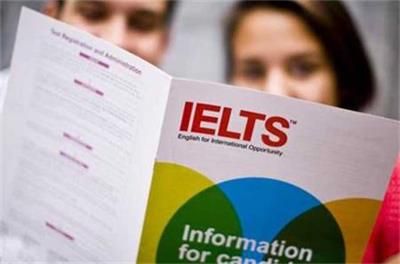留学必备 | 地道英文表达:如何说“略知一二”?
大家好,我是留学生网站的小编。今天我们要聊一个超级实用的话题——如何用地道的英文表达“略知一二”。相信很多小伙伴在和外国朋友聊天时,经常会遇到这种情况:对方问你某个话题,而你又不想显得太无知,但也不想夸大自己的知识水平。这时候,一句地道的“略知一二”就派上用场了!
1. “I know a little bit about it.”
最直接、最常用的表达方式就是这一句:“I know a little bit about it.” 这句话简单明了,适用于各种场合。比如,你的室友突然对中医产生了兴趣,问你知不知道什么,你可以回答:“Yeah, I know a little bit about it. It's an ancient Chinese practice that focuses on balancing the body's energy.” 这样既不会显得你对中医一无所知,也不会让人觉得你是个专家。
2. “I have some basic knowledge.”
如果你觉得“a little bit”有点太谦虚了,可以试试这句话:“I have some basic knowledge.” 这个表达更正式一些,适合在学术或职业环境中使用。例如,你在课堂上被老师问到一个你不太熟悉的历史事件,可以回答:“I have some basic knowledge about that period. It was a time of significant political change in Europe.” 这样既表明了你有一定的了解,又没有夸大其词。
3. “I’m familiar with the basics.”
这个表达和上一个类似,但语气稍微轻松一些。“I’m familiar with the basics” 适合在日常对话中使用。假设你的朋友问你是否了解编程,你可以回答:“I’m familiar with the basics. I can write simple code in Python, but I’m still learning.” 这句话既显示了你有一定的基础,又表达了你还在不断学习的态度。
4. “I’ve heard of it before.”
如果你对某个话题真的了解不多,但又不想完全否定自己,可以试试这句话:“I’ve heard of it before.” 这个表达非常委婉,既不夸大也不贬低自己的知识水平。比如,有人提到一种你不熟悉的音乐流派,你可以回答:“I’ve heard of it before, but I haven’t really listened to much of it. Can you tell me more about it?” 这样不仅表明了你有所耳闻,还给了对方继续讲解的机会。
5. “I have a general idea.”
这个表达适合在你对某个话题有一个大致的概念,但细节不清楚的情况下使用。“I have a general idea” 既不显得你完全不懂,也不让人觉得你很专业。例如,你的同学问你是否了解某个经济学理论,你可以回答:“I have a general idea. It’s about how market forces affect supply and demand, right?” 这样既表明了你有一个大致的概念,又为对方进一步解释留下了空间。
6. “I know the basics, but I’m no expert.”
有时候,你需要明确表示自己虽然有一些基础知识,但不是专家。这时,这句话就非常合适:“I know the basics, but I’m no expert.” 例如,你的教授问你是否了解某个复杂的科学概念,你可以回答:“I know the basics, but I’m no expert. I can explain the general idea, but I might not be able to go into too much detail.” 这样既展示了你的诚实,也避免了误导别人。
7. “I have a rough understanding.”
这个表达适用于你对某个话题有一个大概的理解,但细节不是很清楚的情况。“I have a rough understanding” 既不显得你完全不懂,也不让人觉得你很专业。例如,你的朋友问你是否了解某个国家的文化,你可以回答:“I have a rough understanding. It’s a mix of traditional and modern influences, but I haven’t studied it in depth.” 这样既表明了你有一个大致的概念,又为对方进一步讲解留下了空间。
8. “I’ve got a vague idea.”
如果你对某个话题只有一个模糊的概念,可以试试这句话:“I’ve got a vague idea.” 这个表达非常委婉,既不夸大也不贬低自己的知识水平。例如,有人提到一种你不熟悉的艺术形式,你可以回答:“I’ve got a vague idea. It seems to involve a lot of intricate designs, but I’m not sure about the details.” 这样不仅表明了你有所耳闻,还给了对方继续讲解的机会。
9. “I’m somewhat familiar with it.”
这个表达适合在你对某个话题有一定了解,但不是特别深入的情况下使用。“I’m somewhat familiar with it” 既不显得你完全不懂,也不让人觉得你很专业。例如,你的同事问你是否了解某个软件的功能,你可以回答:“I’m somewhat familiar with it. I’ve used it a few times, but I’m still getting the hang of it.” 这样既表明了你有一定的使用经验,又表达了你还在学习的态度。
10. “I’ve dabbled in it a bit.”
这个表达非常适合在你对某个话题有一些浅尝辄止的经验时使用。“I’ve dabbled in it a bit” 既不显得你完全不懂,也不让人觉得你很专业。例如,你的朋友问你是否了解某种运动,你可以回答:“I’ve dabbled in it a bit. I tried it a couple of times, but I’m not very good at it yet.” 这样既表明了你有过尝试,又表达了你还在学习的态度。
11. “I have a passing knowledge.”
这个表达适合在你对某个话题有一些基本的了解,但不是特别深入的情况下使用。“I have a passing knowledge” 既不显得你完全不懂,也不让人觉得你很专业。例如,你的同学问你是否了解某个历史事件,你可以回答:“I have a passing knowledge of it. I learned about it in a history class, but I don’t remember all the details.” 这样既表明了你有一定的了解,又为对方进一步解释留下了空间。
12. “I’m not an expert, but I know a thing or two.”
有时候,你需要明确表示自己虽然有一些基础知识,但不是专家。这时,这句话就非常合适:“I’m not an expert, but I know a thing or two.” 例如,你的朋友问你是否了解某个领域的知识,你可以回答:“I’m not an expert, but I know a thing or two. I can give you a basic overview if you want.” 这样既展示了你的诚实,也避免了误导别人。
13. “I have a basic understanding.”
这个表达适合在你对某个话题有一个基本的理解,但细节不清楚的情况下使用。“I have a basic understanding” 既不显得你完全不懂,也不让人觉得你很专业。例如,你的教授问你是否了解某个科学概念,你可以回答:“I have a basic understanding. It involves some complex equations, but I can explain the main idea.” 这样既表明了你有一个大致的概念,又为对方进一步讲解留下了空间。
14. “I’ve read a bit about it.”
这个表达适合在你对某个话题有一些阅读经验时使用。“I’ve read a bit about it” 既不显得你完全不懂,也不让人觉得你很专业。例如,你的朋友问你是否了解某个文化现象,你可以回答:“I’ve read a bit about it. It seems to be a popular trend in certain parts of the world, but I haven’t explored it in depth.” 这样既表明了你有所了解,又为对方进一步讲解留下了空间。
15. “I have a surface-level understanding.”
这个表达适合在你对某个话题有一个表面的理解,但不是特别深入的情况下使用。“I have a surface-level understanding” 既不显得你完全不懂,也不让人觉得你很专业。例如,你的同事问你是否了解某个技术,你可以回答:“I have a surface-level understanding. I know what it does, but I haven’t delved into the technical details.” 这样既表明了你有一定的了解,又为对方进一步讲解留下了空间。
小伙伴们,以上这些表达是不是都很实用呢?在日常交流中,灵活运用这些地道的英文表达,不仅能让你的对话更加自然流畅,还能帮助你更好地融入国外的学习和生活环境。希望这篇文章能帮到你们,如果还有其他想了解的内容,欢迎留言告诉我哦!






